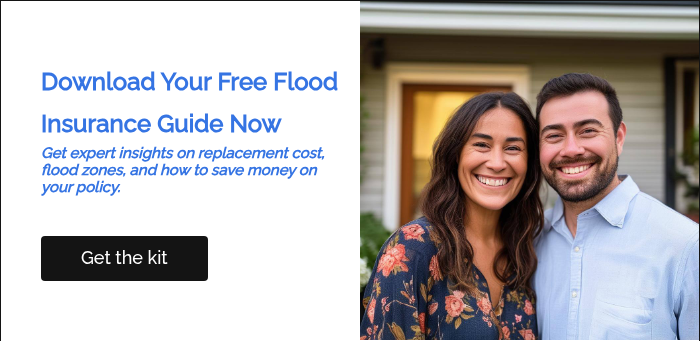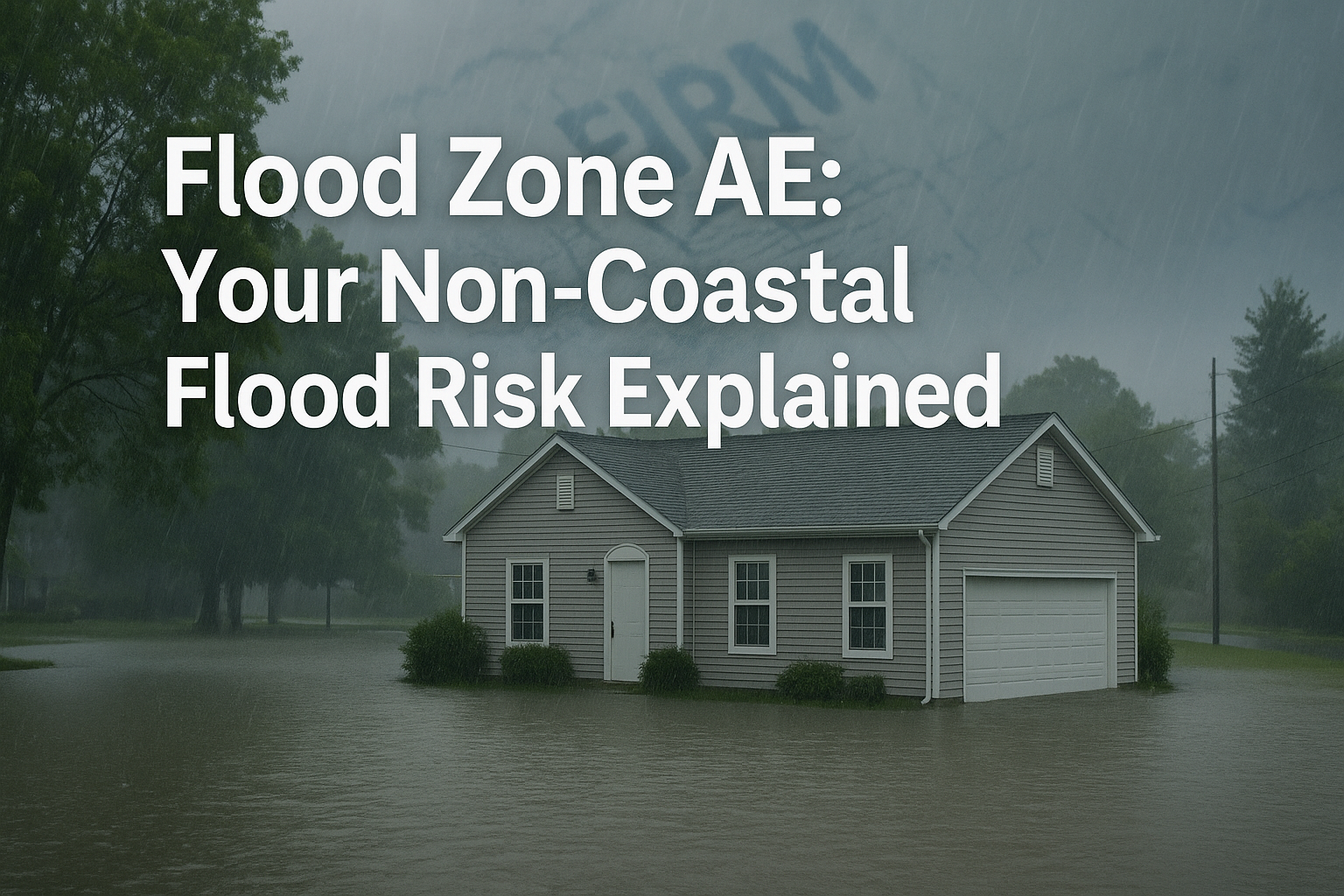What Is a Repetitive Loss Property? Costs, Insurance, and How to Get Off the List
April 24th, 2025
8 min read
By Chris Greene

Is Your Property on FEMA's Repetitive Loss List?
Owning a home in a flood-prone area can lead to rising insurance premiums, difficulty selling, and limited options. If your home has multiple flood claims, it may be listed as a Repetitive Loss (RL) or Severe Repetitive Loss (SRL) property by FEMA. This guide breaks down what that means — and what you can do about it.
What Is a Repetitive Loss Property?
An RL property has had 2+ flood insurance claims over $1,000 in a 10-year span since 1978. An SRL property has:
-
4+ claims of $5,000+, totaling over $20,000; or
-
2+ claims where total exceeds the building’s value.
Though only ~1% of NFIP-insured homes are RL/SRL, they can account for over 25% of claims. This status can raise insurance costs and complicate selling or refinancing.
How It Affects Your Flood Insurance
Risk Rating 2.0 now sets premiums based on your property’s unique risk factors. RL/SRL homes may see annual increases of up to 18% (25% for SRL or non-primary homes).
Key Impacts:
-
Loss of older “grandfathered” rates
-
Full annual premium may be due at closing
-
Private flood insurance may be limited or denied
Tip: Only claims after Oct. 1, 2021, affect rates under Risk Rating 2.0.
NFIP vs. Private Flood Insurance
|
Feature |
NFIP |
Private |
|
Covers RL/SRL homes |
Yes |
Limited |
|
Deny based on claims? |
No |
Yes |
|
Max building coverage |
$250K |
Higher possible |
|
Additional living expenses |
No |
Often included |
|
Basement contents |
Limited |
Often better |
Hybrid Strategy: Use NFIP for guaranteed coverage and add private excess flood insurance for more protection.
Selling a Repetitive Loss Property
Common Hurdles:
-
Harder to get quick quotes
-
Closings may stall if full premium due
-
Many agents/lenders lack RL/SRL knowledge
-
Buyer trust issues if status is a surprise
Smart Selling Tips:
-
Disclose flood history early
-
Get an accurate quote upfront
-
Work with flood-savvy agents
-
Document any mitigation efforts
-
Prepare buyers for insurance-related closing costs
Can You Get Removed from the List?
Yes — with effort.
To request removal from FEMA's RL/SRL list, you'll need:
-
A current Elevation Certificate
-
Detailed mitigation documentation (e.g. elevation, vents, drainage)
-
Several years without new flood claims
-
A formal request submitted through your local floodplain manager
Timeline: 6–18 months
Frequently Asked Questions
Can I sell an SRL property?
Yes, with early disclosure, accurate quotes, and preparation.
Can private flood insurance cover RL homes?
Sometimes — depends on claim history and mitigation.
Never filed a claim but still on the list?
It could be from prior owners. You can request removal or appeal.
When it comes to protecting your home from the unpredictable forces of nature, understanding your flood insurance options is crucial. Many homeowners find themselves navigating the complex landscape of flood insurance, especially when their property lies within a COBRA zone. You've asked, and we're here to answer all your pressing questions about flood insurance in these unique areas.
What Exactly is a COBRA Zone?
What makes COBRA zones different from other flood zones, and why does it matter for my flood insurance?
COBRA zones, or Coastal Barrier Resources System areas, are designated by the federal government to protect natural coastal barriers. Development in these zones is discouraged to conserve natural habitats, minimize loss of human life, and reduce federal expenditure on infrastructure and disaster relief. For homeowners, this means that obtaining federal flood insurance through the National Flood Insurance Program (NFIP) is not an option, making it essential to explore alternative insurance solutions.
Can I Get Flood Insurance in a COBRA Zone?
They Ask: If federal flood insurance isn't available in COBRA zones, what are my options for protecting my property?
You Answer: While properties in COBRA zones are ineligible for federal flood insurance, private flood insurance becomes a vital alternative. Private insurers offer policies designed to meet the unique needs of homeowners in these areas, ensuring you can secure the protection you need against flooding. It's crucial to work with an insurance agent who understands the intricacies of flood insurance policies in COBRA zones to find the best coverage for your home.
How Do I Know If My Property is in a COBRA Zone?
They Ask: How can I determine if my property is located within a COBRA zone and understand the implications for my flood insurance coverage?
You Answer: Identifying whether your property is in a COBRA zone is the first step in navigating your flood insurance options. You can use tools like the CBRS Mapper provided by the Fish and Wildlife Service or consult with a knowledgeable insurance agent. Understanding your property's location helps clarify your insurance options and ensures you're pursuing the right coverage for your situation.
What Should I Look for in a Flood Insurance Policy?
They Ask: What key factors should I consider when choosing a flood insurance policy for my property in a COBRA zone?
You Answer: When selecting a flood insurance policy in a COBRA zone, consider coverage limits, deductibles, and exclusions. It's also important to assess the insurer's reputation and the policy's provisions for claims handling. An insurance agent specializing in flood insurance can help you compare policies and choose one that offers comprehensive protection tailored to your needs.
Conclusion
Understanding flood insurance in COBRA zones doesn't have to be a daunting task. By asking the right questions and seeking expert advice, you can navigate the complexities of securing the right flood insurance for your property. Remember, protecting your home from flooding is about ensuring your peace of mind and financial security, regardless of where you live.
Navigating the Waters of Flood Insurance in COBRA Zones
When it comes to protecting your home from the unpredictable forces of nature, understanding your flood insurance options is crucial. Many homeowners find themselves navigating the complex landscape of flood insurance, especially when their property lies within a COBRA zone. You've asked, and we're here to answer all your pressing questions about flood insurance in these unique areas.
What Exactly is a COBRA Zone?
What makes COBRA zones different from other flood zones, and why does it matter for my flood insurance?
COBRA zones, or Coastal Barrier Resources System areas, are designated by the federal government to protect natural coastal barriers. Development in these zones is discouraged to conserve natural habitats, minimize loss of human life, and reduce federal expenditure on infrastructure and disaster relief. For homeowners, this means that obtaining federal flood insurance through the National Flood Insurance Program (NFIP) is not an option, making it essential to explore alternative insurance solutions.
Can I Get Flood Insurance in a COBRA Zone?
They Ask: If federal flood insurance isn't available in COBRA zones, what are my options for protecting my property?
You Answer: While properties in COBRA zones are ineligible for federal flood insurance, private flood insurance becomes a vital alternative. Private insurers offer policies designed to meet the unique needs of homeowners in these areas, ensuring you can secure the protection you need against flooding. It's crucial to work with an insurance agent who understands the intricacies of flood insurance policies in COBRA zones to find the best coverage for your home.
How Do I Know If My Property is in a COBRA Zone?
They Ask: How can I determine if my property is located within a COBRA zone and understand the implications for my flood insurance coverage?
You Answer: Identifying whether your property is in a COBRA zone is the first step in navigating your flood insurance options. You can use tools like the CBRS Mapper provided by the Fish and Wildlife Service or consult with a knowledgeable insurance agent. Understanding your property's location helps clarify your insurance options and ensures you're pursuing the right coverage for your situation.
What Should I Look for in a Flood Insurance Policy?
They Ask: What key factors should I consider when choosing a flood insurance policy for my property in a COBRA zone?
You Answer: When selecting a flood insurance policy in a COBRA zone, consider coverage limits, deductibles, and exclusions. It's also important to assess the insurer's reputation and the policy's provisions for claims handling. An insurance agent specializing in flood insurance can help you compare policies and choose one that offers comprehensive protection tailored to your needs.
Conclusion
Understanding flood insurance in COBRA zones doesn't have to be a daunting task. By asking the right questions and seeking expert advice, you can navigate the complexities of securing the right flood insurance for your property. Remember, protecting your home from flooding is about ensuring your peace of mind and financial security, regardless of where you live.
Navigating the Waters of Flood Insurance in COBRA Zones
When it comes to protecting your home from the unpredictable forces of nature, understanding your flood insurance options is crucial. Many homeowners find themselves navigating the complex landscape of flood insurance, especially when their property lies within a COBRA zone. You've asked, and we're here to answer all your pressing questions about flood insurance in these unique areas.
What Exactly is a COBRA Zone?
What makes COBRA zones different from other flood zones, and why does it matter for my flood insurance?
COBRA zones, or Coastal Barrier Resources System areas, are designated by the federal government to protect natural coastal barriers. Development in these zones is discouraged to conserve natural habitats, minimize loss of human life, and reduce federal expenditure on infrastructure and disaster relief. For homeowners, this means that obtaining federal flood insurance through the National Flood Insurance Program (NFIP) is not an option, making it essential to explore alternative insurance solutions.
Can I Get Flood Insurance in a COBRA Zone?
They Ask: If federal flood insurance isn't available in COBRA zones, what are my options for protecting my property?
You Answer: While properties in COBRA zones are ineligible for federal flood insurance, private flood insurance becomes a vital alternative. Private insurers offer policies designed to meet the unique needs of homeowners in these areas, ensuring you can secure the protection you need against flooding. It's crucial to work with an insurance agent who understands the intricacies of flood insurance policies in COBRA zones to find the best coverage for your home.
How Do I Know If My Property is in a COBRA Zone?
They Ask: How can I determine if my property is located within a COBRA zone and understand the implications for my flood insurance coverage?
You Answer: Identifying whether your property is in a COBRA zone is the first step in navigating your flood insurance options. You can use tools like the CBRS Mapper provided by the Fish and Wildlife Service or consult with a knowledgeable insurance agent. Understanding your property's location helps clarify your insurance options and ensures you're pursuing the right coverage for your situation.
What Should I Look for in a Flood Insurance Policy?
They Ask: What key factors should I consider when choosing a flood insurance policy for my property in a COBRA zone?
You Answer: When selecting a flood insurance policy in a COBRA zone, consider coverage limits, deductibles, and exclusions. It's also important to assess the insurer's reputation and the policy's provisions for claims handling. An insurance agent specializing in flood insurance can help you compare policies and choose one that offers comprehensive protection tailored to your needs.
Conclusion
Understanding flood insurance in COBRA zones doesn't have to be a daunting task. By asking the right questions and seeking expert advice, you can navigate the complexities of securing the right flood insurance for your property. Remember, protecting your home from flooding is about ensuring your peace of mind and financial security, regardless of where you live.
Navigating the Waters of Flood Insurance in COBRA Zones
When it comes to protecting your home from the unpredictable forces of nature, understanding your flood insurance options is crucial. Many homeowners find themselves navigating the complex landscape of flood insurance, especially when their property lies within a COBRA zone. You've asked, and we're here to answer all your pressing questions about flood insurance in these unique areas.
What Exactly is a COBRA Zone?
What makes COBRA zones different from other flood zones, and why does it matter for my flood insurance?
COBRA zones, or Coastal Barrier Resources System areas, are designated by the federal government to protect natural coastal barriers. Development in these zones is discouraged to conserve natural habitats, minimize loss of human life, and reduce federal expenditure on infrastructure and disaster relief. For homeowners, this means that obtaining federal flood insurance through the National Flood Insurance Program (NFIP) is not an option, making it essential to explore alternative insurance solutions.
Can I Get Flood Insurance in a COBRA Zone?
They Ask: If federal flood insurance isn't available in COBRA zones, what are my options for protecting my property?
You Answer: While properties in COBRA zones are ineligible for federal flood insurance, private flood insurance becomes a vital alternative. Private insurers offer policies designed to meet the unique needs of homeowners in these areas, ensuring you can secure the protection you need against flooding. It's crucial to work with an insurance agent who understands the intricacies of flood insurance policies in COBRA zones to find the best coverage for your home.
How Do I Know If My Property is in a COBRA Zone?
They Ask: How can I determine if my property is located within a COBRA zone and understand the implications for my flood insurance coverage?
You Answer: Identifying whether your property is in a COBRA zone is the first step in navigating your flood insurance options. You can use tools like the CBRS Mapper provided by the Fish and Wildlife Service or consult with a knowledgeable insurance agent. Understanding your property's location helps clarify your insurance options and ensures you're pursuing the right coverage for your situation.
What Should I Look for in a Flood Insurance Policy?
They Ask: What key factors should I consider when choosing a flood insurance policy for my property in a COBRA zone?
You Answer: When selecting a flood insurance policy in a COBRA zone, consider coverage limits, deductibles, and exclusions. It's also important to assess the insurer's reputation and the policy's provisions for claims handling. An insurance agent specializing in flood insurance can help you compare policies and choose one that offers comprehensive protection tailored to your needs.
Conclusion
Understanding flood insurance in COBRA zones doesn't have to be a daunting task. By asking the right questions and seeking expert advice, you can navigate the complexities of securing the right flood insurance for your property. Remember, protecting your home from flooding is about ensuring your peace of mind and financial security, regardless of where you live.
Topics:
























